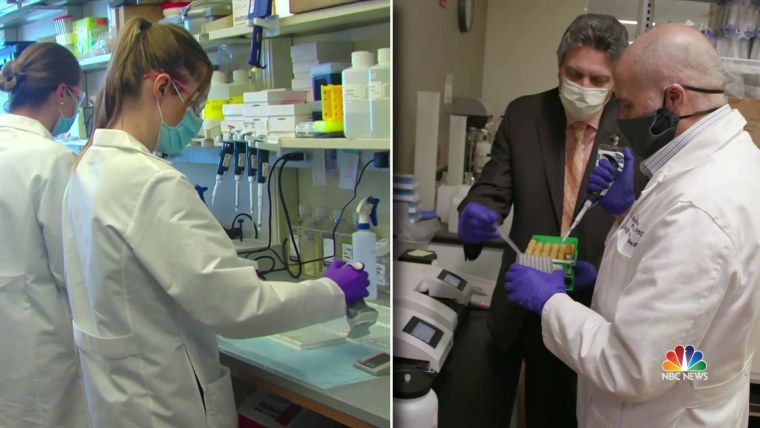A top U.S. scientist behind groundbreaking research in cancer and HIV/AIDS is warning that a vaccine for the coronavirus may never be found, as the number of global COVID-19 infections surged past 5 million on Thursday.
William Haseltine, who has also worked on human genome projects, said that while a COVID-19 vaccine could be developed, “I wouldn’t count on it.” Instead, he told Reuters, countries beginning to reverse lockdown measures need to lean on careful tracing of infections and strict isolation measures to control the spread.



Such an approach has proved successful in some countries that have minimized the spread, but worldwide, the numbers continue to climb. More than 328,000 people have died due to the virus while 5,001,494 have been infected, according to Johns Hopkins University as of Thursday morning.
The United States accounts for 94,083 of those fatalities and more than 1.5 million cases, according to NBC News’ tracking — the highest reported totals for any one country.
A race to develop a vaccine is underway at labs across the globe. Britain’s Oxford University has trials underway that if successful could see a vaccine available by September, while in the U.S., Massachusetts-based firm Moderna announced this week its first round of testing of a vaccine were strong enough to move ahead to a larger second trial.
Let our news meet your inbox. The news and stories that matters, delivered weekday mornings.
Download the NBC News app for latest updates on the coronavirus outbreak.
These developments are crucial. The World Health Organization announced Wednesday that the world saw its highest increase in reported cases in a 24-hour period with 106,000 new infections.
However, Haseltine cautioned vaccines developed for other types of coronavirus in the past failed to protect mucous membranes in the nose where the virus typically enters the body. And while tests on animals of some experimental COVID-19 vaccines had been able to reduce the viral load in organs like lungs, the infections remained.
Even without an effective treatment or vaccine, he said the virus can be controlled by identifying infections, finding people who have been exposed and isolating them. People should also wear masks, wash hands, clean surfaces and keep a distance, he said.
For treatment, there are more promising developments. Antibody-rich plasma donated by people who recovered from COVID-19 is being delivered to sick patients and drugmakers are working to produce refined and concentrated versions of that serum, known as hyperimmune globulin.
Haseltine believes those products are among the trials “where the first real treatments are going to be.”
In the meantime, the Centers for Disease Control and Prevention quietly released a document this week on its website outlining recommendations for reopening restaurants, mass transit, schools and child care programs across the U.S.
Full coverage of the coronavirus outbreak
It cautioned that not all businesses and institutions should reopen yet — depending on the number of coronavirus cases in their local areas — and instead recommended a three-phase approach, one more permissive than the last, provided rates of transmission do not spike.
China and South Korea — among the best countries at curbing infection rates according to Haseltine — began easing lockdowns last month. Although China has had to re-implement lockdowns in some areas last week due to upticks in infections.
Across Europe, some of the hardest-hit countries such as Italy and France also began easing restrictions in recent weeks.



Linda Givetash is a London-based producer for NBC News.

